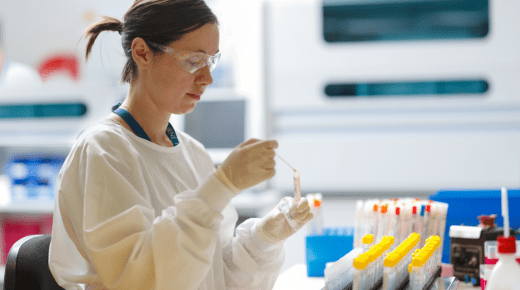Melbourne Pathology Test Collection Manual
Introduction to Melbourne Pathology
Melbourne Pathology is a leading provider of diagnostic and pathology services in Australia. Known for its excellence in medical testing and patient care, Melbourne Pathology offers a wide range of tests to diagnose various health conditions. Their test collection manual is an essential resource for healthcare professionals and patients alike.
Importance of Pathology Tests
Pathology tests are crucial for diagnosing diseases, monitoring health conditions, and guiding treatment decisions. They provide valuable information about the body’s organs, tissues, and fluids. Melbourne Pathology’s tests help detect infections, monitor chronic diseases, and assess overall health, making them an integral part of healthcare.
Overview of the Test Collection Manual
The Melbourne Pathology Test Collection Manual provides detailed instructions for collecting and handling specimens. It ensures that samples are collected correctly to yield accurate results. The manual covers a wide range of tests, including blood, urine, and tissue samples, and is designed to assist healthcare professionals and patients.
Specimen Collection Procedures
Proper specimen collection is vital for accurate test results. The manual outlines step-by-step procedures for collecting different types of specimens. It includes guidelines on patient preparation, equipment needed, and the correct techniques for obtaining samples, ensuring that the process is done efficiently and correctly.
Blood Test Collection Guidelines
Blood tests are among the most common pathology tests. The manual provides specific instructions for blood collection, including the selection of appropriate veins, the use of proper equipment, and techniques to minimize patient discomfort. It also covers safety protocols to prevent contamination and ensure accurate results.
Urine Sample Collection
Urine tests are used to diagnose various conditions, including infections and kidney disorders. The manual details the correct methods for urine collection, including midstream and 24-hour urine samples. It emphasizes the importance of clean-catch techniques to avoid contamination and ensure reliable results.
Handling and Transporting Specimens
Proper handling and transportation of specimens are critical to maintaining their integrity. The manual outlines the best practices for labeling, storing, and transporting samples to the laboratory. It includes guidelines for temperature control and time-sensitive handling to ensure that specimens remain viable for testing.
Tissue Sample Collection
Tissue samples, or biopsies, are collected to diagnose various conditions, including cancer. The manual provides detailed instructions for obtaining tissue samples, including preparation, collection techniques, and handling procedures. It ensures that samples are collected safely and effectively for accurate diagnosis.
Preparation for Pathology Tests
Patient preparation is crucial for accurate pathology tests. The manual includes guidelines for fasting, medication restrictions, and other preparatory steps. Proper preparation ensures that test results are not influenced by external factors, providing a true reflection of the patient’s health status.
Safety and Infection Control
Safety and infection control are paramount during specimen collection. The manual emphasizes the importance of using personal protective equipment (PPE), proper hand hygiene, and sterile techniques. These measures protect both the patient and the healthcare professional from potential infections and contamination.
Interpreting Test Results
Interpreting pathology test results requires expertise and understanding of normal and abnormal values. The manual provides a basic overview of how to interpret common test results. It helps healthcare professionals understand what the results indicate about a patient’s health and the next steps in their care.
Common Blood Tests
The manual covers a range of common blood tests, including complete blood count (CBC), blood glucose levels, and lipid profiles. It explains the purpose of each test, the conditions they diagnose, and the proper collection techniques to ensure accurate results.
Specialized Tests and Procedures
Melbourne Pathology offers specialized tests for more complex conditions. The manual includes instructions for these tests, such as genetic testing and hormone level assessments. These detailed procedures ensure that samples are collected and handled correctly to provide precise and reliable results.
Quality Control in Pathology Testing
Quality control is essential in pathology testing to ensure accuracy and reliability. The manual outlines the quality control measures in place at Melbourne Pathology, including regular equipment calibration, proficiency testing, and strict adherence to protocols. These measures maintain high standards in test results.
Patient Education and Communication
Educating patients about the importance of pathology tests and proper specimen collection is crucial. The manual provides information on how to effectively communicate with patients, explaining procedures, and addressing any concerns they may have. Clear communication helps ensure patient cooperation and accurate test results.
Troubleshooting Common Issues
The manual includes a section on troubleshooting common issues that may arise during specimen collection and handling. It offers solutions for problems such as difficult venipuncture, insufficient sample volumes, and specimen contamination. This guidance helps healthcare professionals address and resolve issues efficiently.
Electronic Documentation and Reporting
Melbourne Pathology utilizes electronic systems for documenting and reporting test results. The manual provides instructions on how to use these systems effectively, ensuring that results are accurately recorded and promptly communicated to healthcare providers and patients.
Regulatory and Compliance Guidelines
Compliance with regulatory standards is crucial in pathology testing. The manual outlines the relevant regulations and guidelines that Melbourne Pathology adheres to, including those from national and international health organizations. This ensures that all procedures meet the highest standards of quality and safety.
Research and Development in Pathology
Melbourne Pathology is committed to ongoing research and development to improve diagnostic methods and patient care. The manual highlights the latest advancements in pathology testing and how they are incorporated into practice. This commitment to innovation ensures that patients receive the best possible care.
Ethical Considerations in Pathology Testing
Ethical considerations are important in pathology testing. The manual addresses issues such as patient consent, confidentiality, and the ethical use of test results. It ensures that all procedures are conducted with respect for patient rights and ethical standards.
Continuing Education for Healthcare Professionals
Continuing education is essential for healthcare professionals to stay updated with the latest developments in pathology. The manual includes resources and recommendations for ongoing training and professional development. This ensures that healthcare providers remain knowledgeable and skilled in their field.
Collaborating with Other Healthcare Providers
Collaboration with other healthcare providers is key to comprehensive patient care. The manual emphasizes the importance of communication and cooperation between pathologists, primary care physicians, and specialists. This collaborative approach ensures that patients receive well-rounded and effective care.
Advances in Pathology Technology
Technological advancements are continually improving pathology testing. The manual highlights new technologies and their applications in diagnostic testing. These innovations enhance the accuracy, efficiency, and scope of pathology services offered by Melbourne Pathology.
Patient Case Studies and Success Stories
The manual includes patient case studies and success stories to illustrate the impact of pathology testing on patient outcomes. These examples demonstrate how accurate and timely diagnosis through pathology testing can lead to effective treatment and improved health.
Future Directions in Pathology Testing
The future of pathology testing holds exciting possibilities. The manual discusses emerging trends and potential advancements in the field, such as personalized medicine and molecular diagnostics. Staying informed about these developments ensures that Melbourne Pathology continues to provide cutting-edge diagnostic services.

